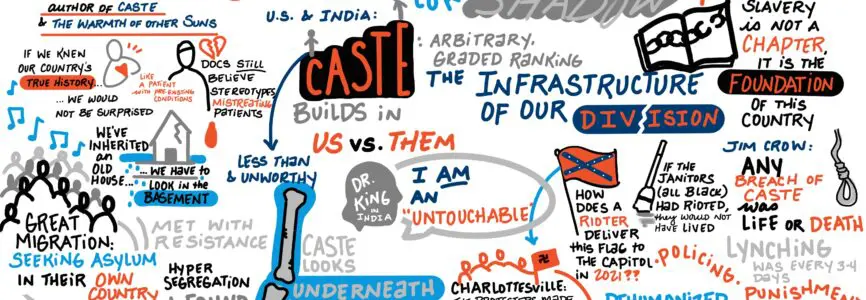Hastings Center News
A “Breakdown in Humanity”
Pulitzer Prize-winning author Isabel Wilkerson last month told an audience of over 2,600 people at the health equity summit co-convened by The Hastings Center that one of the consistent outcomes of empirical studies is that too many medical professionals still believe that Black and brown people do not experience pain to the degree that white patients do and are less likely to receive pain medicine, even if they have end-stage cancer. “This is a complete breakdown not only in medicine; it’s a breakdown in humanity.”
The author of the bestselling books Caste: The Origins of Our Discontents and The Warmth of Other Suns, in a keynote address to the conference, “Righting the Wrongs: Tackling Health Inequities,” described the ways in which structural racism in the United States is a caste system, an old framework and hierarchy based on skin color and a fundamental cause of disease. “It is our responsibility to correct and repair what was built,” she said.
“How would you apply the caste construct to the structures of American medicine?” asked Hastings Center President Mildred Solomon during an interview and Q&A following the talk. “What can the health care professions do to dismantle caste?”
Wilkerson noted that Black and brown people are less likely to have health insurance—even as they are overrepresented as frontline workers at risk of Covid-19 and other illnesses. And, once they enter the health care system, they are less likely to get treatments. “There are life-and-death consequences of the hierarchies.”
The Hastings Center and the Association of American Medical Colleges Center for Health Justice convened the two-day health equity summit on January 19 and 20. Co-sponsors included the American Medical Association, the American Nurses Association, the American Board of Internal Medicine Foundation, and the American Hospital Association.

